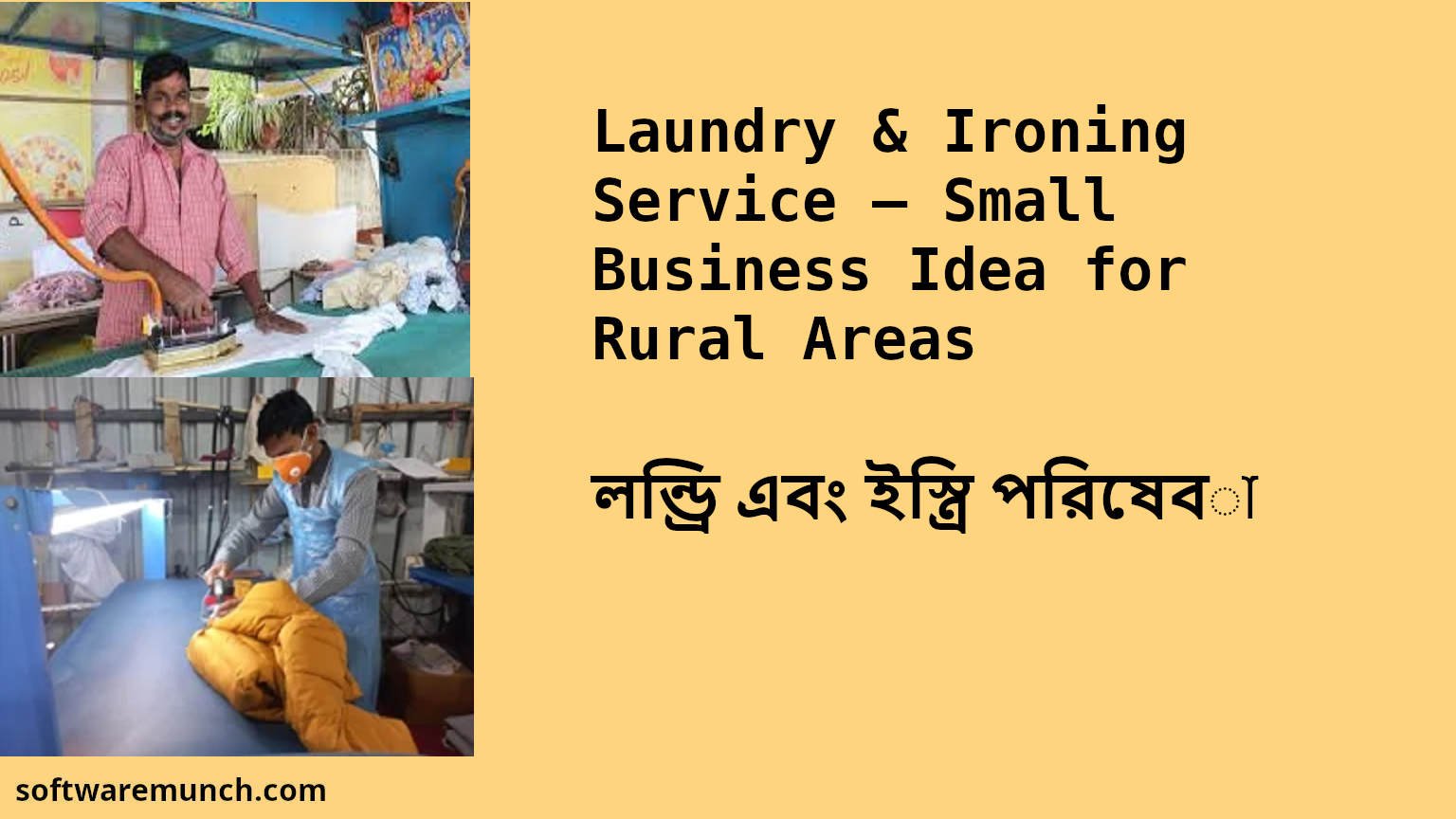Clothes are part of everyones daily life but keeping them clean and neatly ironed is not always easy. In villages and small towns many families still wash clothes by own hand, which takes time and energy. Students, working women and office going people often find it difficult to manage washing and ironing on top of their busy routines. That is where a laundry and ironing service becomes very valuable , it saves time, reduces effort and ensures clothes are ready for everyday use. Starting such a service does not require very high investment yet it can bring a steady and reliable income to a family.
Why It matters
Imagine a school going child with a crumpled uniform or an office worker with a shirt not ironed properly. It leaves a poor impression but not everyone has the time or facilities to manage their clothes daily. In the rainy season, drying clothes becomes another big challenge. A laundry and ironing service fills this gap. It is a business that helps people live more comfortably while creating a livelihood for the owner.
Starting the service
A small shop near the market or main road is usually enough. Even a 100 sq ft. room if arranged properly, can serve the purpose. The basic requirements are simple , a strong table for ironing, a reliable iron box (either electric or charcoal based), buckets, detergents, clips and space to dry clothes etc. If you can afford it, investing in a semi automatic washing machine makes the work faster and helps attract many more customers.
The total investment for a small laundry business can be around Rs25000 to Rs 30000. This includes the machine, iron box, table, soap and some basic plumbing for water and drainage. If you do not own a space, a rented room adds a small extra cost.
Skills and knowledge
No advanced training is needed but handling clothes with care is very important. Different fabrics demand different treatment , cotton needs stiff ironing, silk requires gentleness and wool cannot be washed like regular clothes. Learning simple tricks for stain removal also adds value to the service. In some towns, self help groups or NGOs organize short training programs for laundry and ironing which can help beginners gain the required confidence.
What customers Expect
Most people will come for ironing, because it is something they may find difficult to do neatly at home. Sarees, school uniforms, office shirts and trousers etc are the most common clothes brought for pressing. Many will also want washing services, especially bachelors, hostel students and small families. During weddings and festivals, demand naturally increases as people want their best clothes cleaned and pressed.
Regular customers often prefer package deals. For example, students may like a monthly package where all their clothes are washed and ironed for Rs300 to ₹Rs 00. Families may choose weekly services. With steady customers, a shop can easily bring in Rs15k to Rs20k a month. Over time, as trust grows, the income becomes more reliable.
Building Trust and attracting Customers
In a small town or village, people talk. If you give neat and timely service, your customers will bring more customers. A clear signboard outside your shop helps. Clean packaging, such as covering ironed clothes with paper or plastic shows care and professionalism. Offering home delivery for busy office goers or students can make you stand out. Even small gestures like giving priority service for uniforms or special discounts for regular customers builds loyalty.
Support and loans
For those worried about initial investment government schemes like MUDRA Yojana provide small business loans with low interest. Women entrepreneurs may also find special loan options through banks or cooperative societies. These schemes make it easier to buy machines and set up a proper ironing shop. Many successful entrepreneurs in villages began with just an iron box and later expanded with the help of such loans.
Challenges and solutions
Of course, no business is without difficulties. Power cuts can stop ironing work, but keeping a charcoal iron as backup solves the problem. water shortage is another common issue , storing water in large drums can keep the washing running smoothly. Seasonal challenges especially in the rainy months, can be turned into opportunities by offering drying services with covered spaces or small driers.
A Real Example
Take the story of Meena Devi from a small town in Bihar. She began with just one iron box and a wooden table. At first, she barely earned a few hundred rupees per day. But she never compromised on neatness and punctuality. Slowly, students and shop workers started trusting her. With time she saved enough and took a small bank loan to buy a washing machine. These days she earns more than Rs 20000 a month, employs another helper and is known in her town now as – Meena Presswali. Her story shows how small beginnings can lead to a respected and sustainable business.
Last Words
A laundry and ironing service is more than just a small shop , it is a support system for families, students and workers. It demands low investment, simple skills and sincerity. For rural people, who want to start earning especially women and youth looking to start on their own, This work offers steady income, dignity and the chance to grow. clothes are a daily necessity and people will always need them clean and well kept. With effort and care, this business can become not just a way of earning but also a path to respect and stability in the community.
